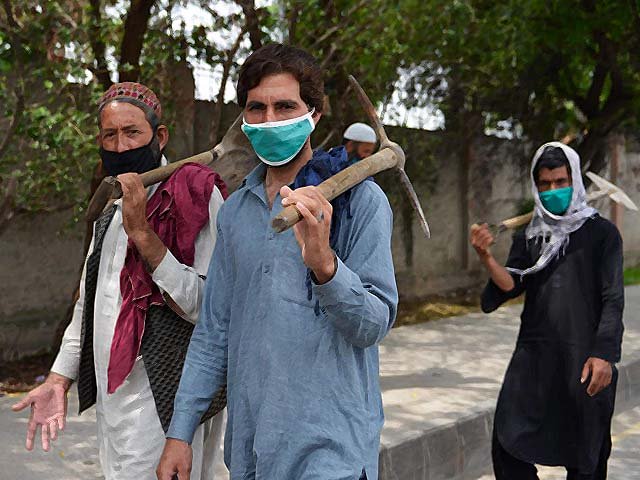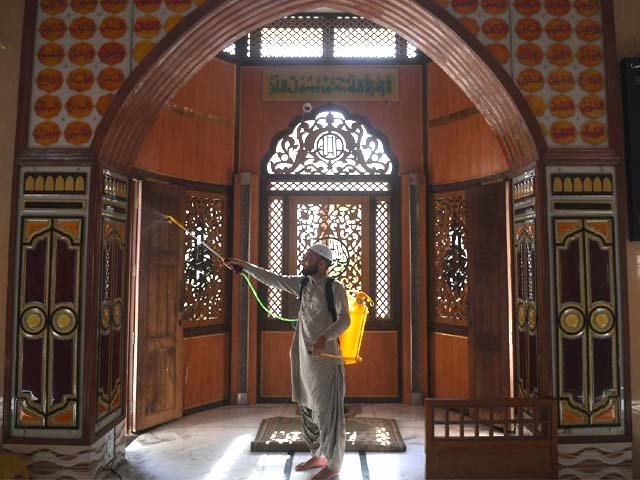
Did Aamir Liaquat accidentally defend secular democracy?
We direly need religious scholars like Aamir Liaquat lending their voices to the progressive forces of this country.
Controversial scholar, entertainer and televangelist, Aamir Liaquat, offers a liberal feminist virtually no reason to smile and nod politely. On March 16, 2016, Mr Liaquat may have finally broken that tradition.
On an episode of NewsEye, Mehr Abbasi raised the subject of the Punjab Protection of Women Against Violence Act and the controversy surrounding it. Senator Hafiz Abdullah, of Jamiat Ulema-e-Islam-Fazl (JUI-F), rebuked the act as any viewer acquainted with Pakistani political dynamics may have anticipated.
It was the identity of the act’s defender, which came as a pleasant surprise.
Mr Aamir Liaquat was visibly bitter, missing one burning cigarette clamped casually between two fingers, from becoming a perfect picture of a man too disgusted to even feign attentiveness on camera. When Mehr Abbasi prompted Liaquat to express his opinion on the controversy surrounding the Women Protection Act, he spoke simply and sardonically:
“We say that there’s democracy in Pakistan. Then a bill is presented in the Assembly, which is passed in a democratic manner. And then they (the coalition of religious parties) threaten the institution with a deadline (for amendment), saying we’ll do this and that if you don’t listen to us. Okay, fine! Hand everything over to them! Make Pakistan a theocratic state! Let’s end this debate once and for all!”
Mehr Abassi jokingly suggested if we ought to surrender the state entirely to “mullah and military”, then laughingly adding that they “already own it”.
The exchange was exceptional in numerous ways. Aamir Liaquat is not the kind of person expected to criticise excess religious supervision or intervention in national affairs. He has been accused of provoking intolerance, even violence, against Pakistani Ahmadis. And he has demonstrated an inability to distinguish secularism from ‘atheism’, while blasting PK as an ‘anti-religious’ movie.
It turns out, that when Mr Liaquat isn’t handing out babies in a TV show like boxes of gulab jamun, or watching the film Ghalib, he is saying stuff that makes tremendous amount of sense. He is taking a firm stand for the rights and safety of women; and in a political atmosphere where the new laws are under siege by the right-wing, this stance is both important and courageous. He risks alienating the religious-right demographic that he depends on, in the clear interest of a greater good.
Aamir Liaquat did not directly defend ‘secular democracy’ and I’m certain that if made to clarify his stance, would likely reiterate his opposition to secularism. He took a stand for democratic values, which may not be overturned by opposition on religious grounds. And let’s not be mistaken; the religious resistance to the Protection of Women act is massive, as demonstrated by the conference in Mansoora, among others.
That is, however, the way the system is built.
A ‘democracy’ comes in many colours. It could be a meritocratic democracy, a secular democracy, or a theocratic democracy, to name a few kinds. And each adjectivised democracy, essentially limits the range to which the people may exercise their democratic freedoms, in its own unique way.
A law repugnant to Islamic injunctions may not be put into place, according to Article 227 of the constitution. What sort of non-theocracy comes with a Shariah Court and a Council of Islamic Ideology, with the latter threatening to charge the Punjab Assembly for treason under Article 6 for approving the bill without its consent?
This is far from a Priest-King system of governance conceived as classic theocracy, but there is an obvious theocratic element existing within our democratic set-up.
“Secularism” is a toxic word, like “liberal” and “feminist”. But as it happens, many of us casually air secular, liberal and feminist opinions, while unequivocally rejecting those labels. We bemoan ‘mullahism’ and the regressionist politics of the religious right, but are infuriated about the proposal of ‘secularism’: a tried-and-tested method of ending this obstructionism, while allowing us to retain our individual religious freedoms.
That said, Mr Aamir Liaquat’s stand for the Women Protection Act on NewsEye, and earlier on Tonight with Fereeha, hasn’t gone unnoticed and unappreciated.
Recall that Pakistan was not too long ago labelled the third most dangerous country for women. And there’s enough statistical evidence to back this claim. The Women Protection Act is a desperate attempt to secure our national honour – ironically speaking.
In this regard, where popular religious parties are almost completely aligned against a set of laws intended to achieve this goal, we direly need religious scholars like Aamir Liaquat lending their voices to the progressive forces of this country.




COMMENTS (14)
Comments are moderated and generally will be posted if they are on-topic and not abusive.
For more information, please see our Comments FAQ